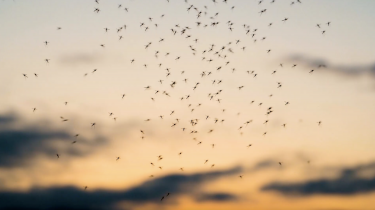Infectious diseases

Health & Medicine
Research
You can get your COVID and flu vaccinations at the same time, but what’s best - one arm or two?
You can save time and money by getting two vaccinations at the same time, and new research finds that it doesn’t really matter which arm or arms the jab goes in

Sciences & Technology
3 reasons why the release of GM mosquitoes in Queensland is risky
We do need to control disease-carrying mosquitoes in Australia, but more research is needed on GM strains before their proposed release in Queensland

Sciences & Technology
We’re not winning the battle between mosquitoes and modern homes
By blurring the lines between indoor and outdoor spaces, modern homes often invite mosquitoes. But there are ways to prevent them and the diseases they carry

Sciences & Technology
We now know what causes the Buruli ulcer, so what are we doing about it?
Knowing that mosquitoes are involved in the transmission of the Buruli ulcer in Victoria is a breakthrough, but we need to work out what happens next to tackle the disease

Health & Medicine
How a simulation is informing COVID-19 vaccine policy after our ‘return to normal’
A new model can simulate thousands of ‘individuals’ – each with their own vaccination and infection histories – tailoring vaccine schedules as new COVID-19 variants emerge

Health & Medicine
Is ‘herd immunity’ in intensive care doing more harm than good?
New research suggests an antibiotic treatment commonly used in Intensive Care Units is putting patients at risk by creating ‘herd peril’

Health & Medicine
A new way to manage antibiotic allergies in Australia
Two million Australians self-report an allergy to penicillin – but most actually aren’t allergic – and this can lead to serious public health consequences

Health & Medicine
Ending the global tuberculosis epidemic
TB occurs in every part of the world and remains a major public health challenge that we can end through concerted action

Health & Medicine
Bird flu, human cases and the risk to Australia
Avian flu is continuing to spread throughout the world, infecting some mammals as it goes – but what’s the risk to Australia?

Health & Medicine
Into the wild to fight antibiotic resistance
Antimicrobial resistance is part of the chemical warfare bacteria wage in nature, and that’s where researchers now looking for new clues to overcome it